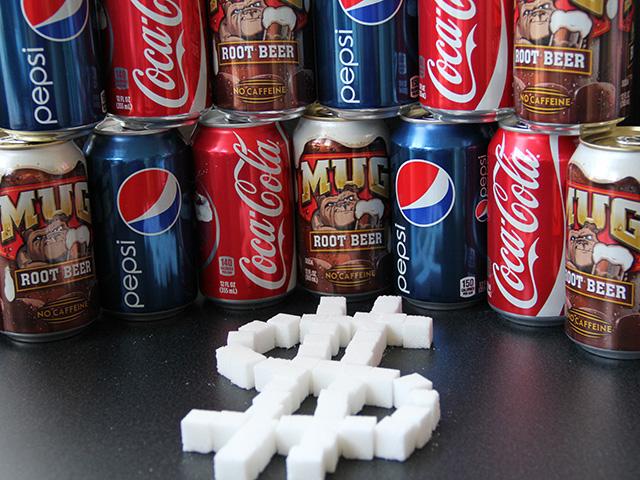An Urban's Rural View
It's Time to Take the Sodas out of SNAP
Congressional Republicans keep churning out ideas for reigning in government food and nutrition programs. One that's gotten attention lately is pennywise and pound foolish. But two others are worth a closer look.
The pound-foolish idea was to take a whack out of the Special Supplemental Nutrition Program for Women, Infants, and Children, or WIC. The GOP's initial proposal to fund the government in fiscal 2024 would have cut several hundred million dollars from WIC's budget and more than halved the so-called fruit-and-vegetable benefit. (https://www.politico.com/…)
WIC is a narrowly tailored program to provide critical nutrition like infant formula, breastfeeding advice and fruits and vegetables to women without means and their children at a critical time, from infancy through toddlerhood and up to age 5. This is when 90% of the human brain develops. Malnutrition during these years risks cognitive impairment.
If ever there was a welfare program that shouldn't be whacked, then, it's this one. The money saved now is pennies compared to the cost to society later in lost productivity and higher Medicaid and Medicare bills.
Whacking WIC was, as moderate Republicans quickly realized, a potential vote-loser; to many Americans, these cuts would seem hard-hearted and cruel. In the end, the appropriations bill the Republican-controlled House passed provided a $1 billion increase for WIC, which avoided putting 2 million eligible recipients on waiting lists. Republicans got cuts in other programs in exchange. (https://www.politico.com/…)
A more interesting idea, the hobby horse of Republican Congressman Andy Harris of Maryland, is to restrict what used to be called food stamps -- the Supplemental Nutrition Assistance Program, or SNAP -- to healthy foods. Food stamps could no longer be used to buy sodas, potato chips and the like. They could only be used for foods that provide what's mentioned in the program's name -- nutrition.
P[L1] D[0x0] M[300x250] OOP[F] ADUNIT[] T[]
Harris, who's a physician, says obesity costs the government hundreds of billions every year in Medicaid and Medicare payments -- and 40% of SNAP recipients are obese. "If SNAP more effectively addressed nutrition," he argues, "it could help reduce the prevalence of obesity, which in turn would lower healthcare costs in the U.S. and help address the country's long-term fiscal challenges."
Food producers and retailers dislike this idea. The National Grocers Association, which represents independent food retailers, says people paying with food stamps should be "allowed to shop with the same dignity as any other customer." Besides, NGA goes on, SNAP recipients will continue to buy unhealthy foods, they'll just pay for them out-of-pocket and use the food stamps for something else. (https://www.nationalgrocers.org/…)
If you think about it, that second contention undermines the first. If SNAP recipients will continue to buy unhealthy food, they won't suffer any loss of dignity. They'll just pay for unhealthy food with their own money rather than that of taxpayers.
Under current regulations food stamps can't be used to buy alcohol, tobacco, pet food, paper products or vitamins -- all things that "any other customer" can buy. Yet no one's talking about dignity.
NGA does make one strong point: Defining "unhealthy" could prove chaotic. NGA says the government will have to "categorize more than 600,000 products and thousands more each year." Those numbers may be exaggerations, but the problem is a real one. Big fights over the criteria are inevitable and every food company would contest its products' inclusion in the list.
In any event, the odds of Congress enacting a "healthy-foods-only" restriction are close to nil. SNAP is the largest farm-bill program. Groups dedicated to helping "food insecure" Americans are key Democratic Party constituents and key coalition partners in getting any farm bill passed. These groups oppose cutting SNAP benefits, and while there's give-and-take among coalition partners, none of whom gets everything they want, this would be a very big take from the hunger lobby.
Which leads to a variation on Harris' idea, one he calls "an important first step" -- disallow the use of food stamps to buy sweetened beverages. SNAP doesn't cover tobacco and alcohol because they aren't nutritious. The same logic applies to sodas. A 12-ounce regular soda has more than 10 teaspoons of added sugar. (https://www.cdc.gov/…)
No definitional problem there. Congress should take the sodas out of SNAP.
Making this idea's time come might require a compromise, perhaps pairing it with increased funding for fruit-and-vegetable incentive programs. Talk about win-win. The hunger lobby could claim a budget boost; SNAP recipients would be healthier; and less obesity could mean less federal spending over time.
Not every proposed change to nutrition programs is hard-hearted and cruel.
Urban Lehner can be reached at urbanize@gmail.com
(c) Copyright 2024 DTN, LLC. All rights reserved.




